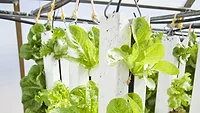FSA: More Data Required to Determine Safety of Cultured Meats

Credit: Ivy Farm via Unsplash
The UK Food Standards Agency (FSA) recently conducted an analysis of hazards associated with cultured meat products (also known as “cell-based” or “cultivated” meat) and identified several risk areas while acknowledging that there are still existing knowledge and data gaps.
FSA conducted its hazard analysis of cultured meat products to support the development of an appropriate regulatory framework to ensure that products made through cell-culturing technology are safe for human consumption. At present, only one authority, the Singapore Food Agency, has approved a cell-cultured meat product for sale on the Singaporean market. Additionally, in 2019, the U.S. Department of Agriculture’s Food Safety and Inspection Services (USDA’s FSIS) and the U.S. Food and Drug Administration (FDA) took an approach to collaborate in regulating cultured meat. Recently, FDA recently granted its first “no questions asked” letters to two producers of cultured meat products, moving the novel foods one step closer to commercialization in the U.S. The Food and Agriculture Organization of the United Nations (FAO) also attempted to characterize the terminologies, production process, and existing regulatory frameworks around cell-cultured products in October 2022.
The hazard identification process involved a scoping literature review to assess food safety risks considering the following stages and factors of cultured meat production: selection of the starting cell lines; the culture environment; the proliferation, differentiation, and maturation of growing cells; large-scale production; cell harvest and detachment; final product formulation; and good production practices. FSA identified various hazards in the categories of:
- Differences between the nutritional profiles of cultured meat products and traditional meats
- The food safety of chemicals, biologics, media formulations, additives, and supplements used during the cell culturing process
- The infection of cell cultures by bacteria, yeast, fungi, mycoplasma, viruses, and endotoxins
- Possible cross-contamination between cell lines leading to misidentification issues
- Risks associated with cell lines that can arise due to the complex and nuanced nature of stem cells and progenitors’ cells that can be used to produce cultured meat.
Importantly, FSA found considerable gaps in the type of knowledge that is required by UK novel foods regulations. Specifically, there was little or no empirical data found on the final analytical composition of products, key toxicology data, nutrition profiles, product stability, allergy risk, and any recorded adverse effects when consumed by animals or humans. Safety aspects were more commonly found in available literature on aspects of the environment or the impacts of cell-cultured products, which produced inconsistent results, as some studies reported negative environmental impacts while others highlighted positive outcomes.
Looking for quick answers on food safety topics?
Try Ask FSM, our new smart AI search tool.
Ask FSM →








